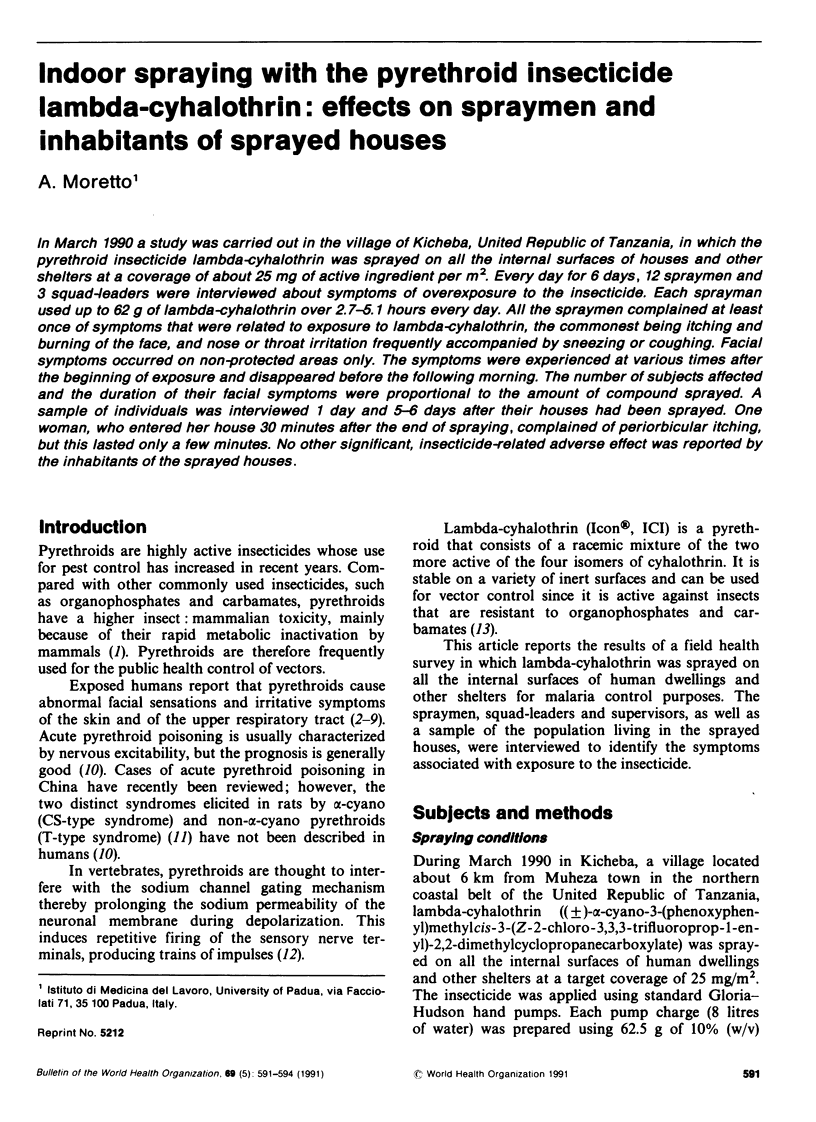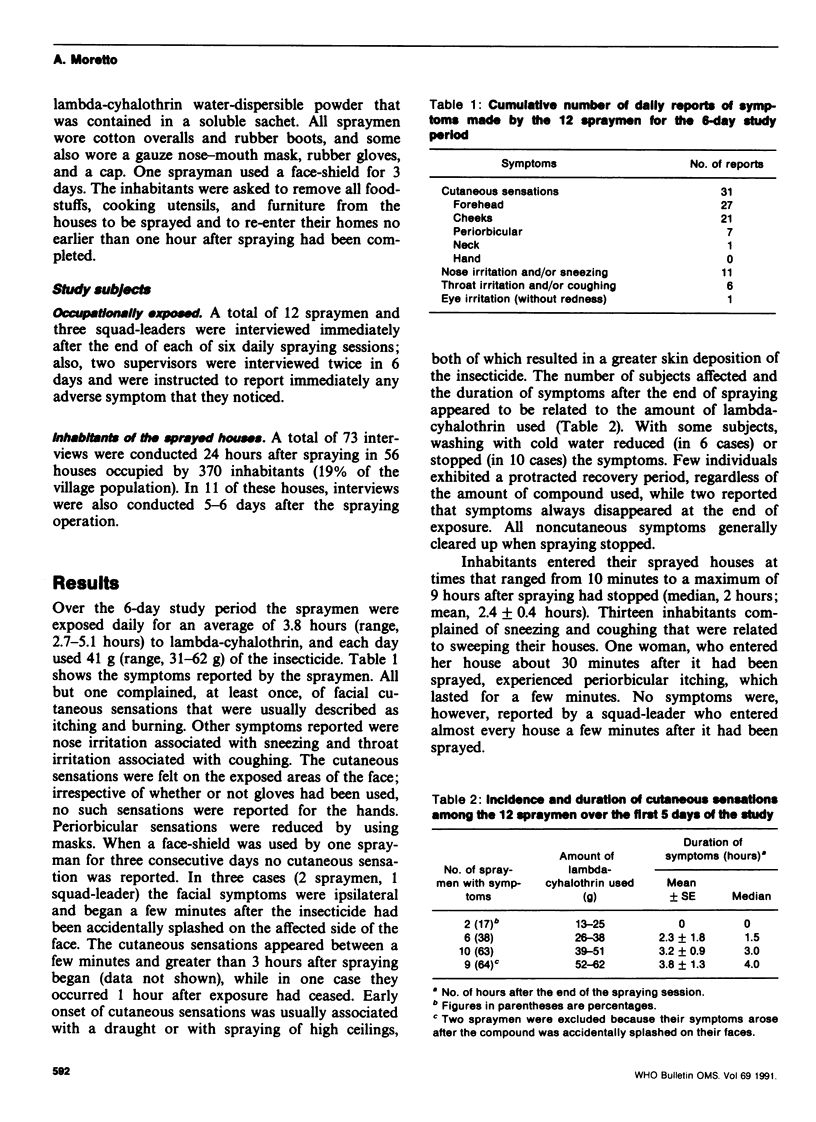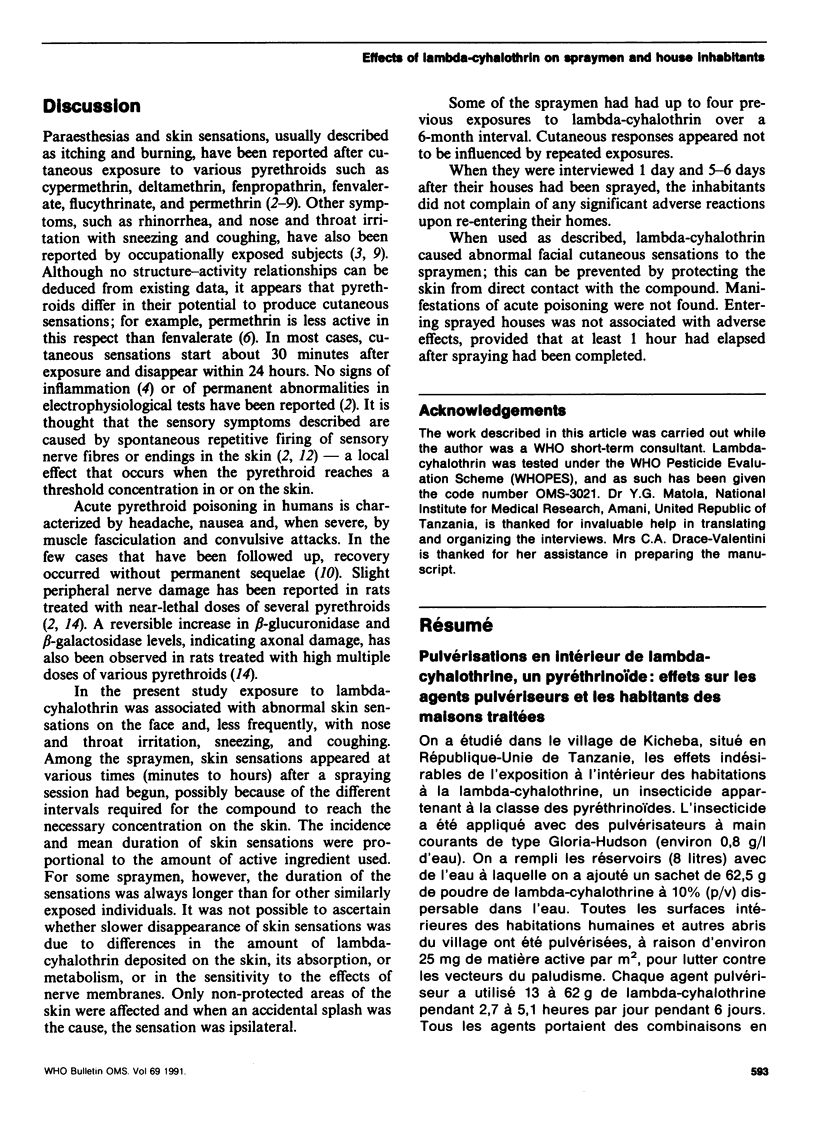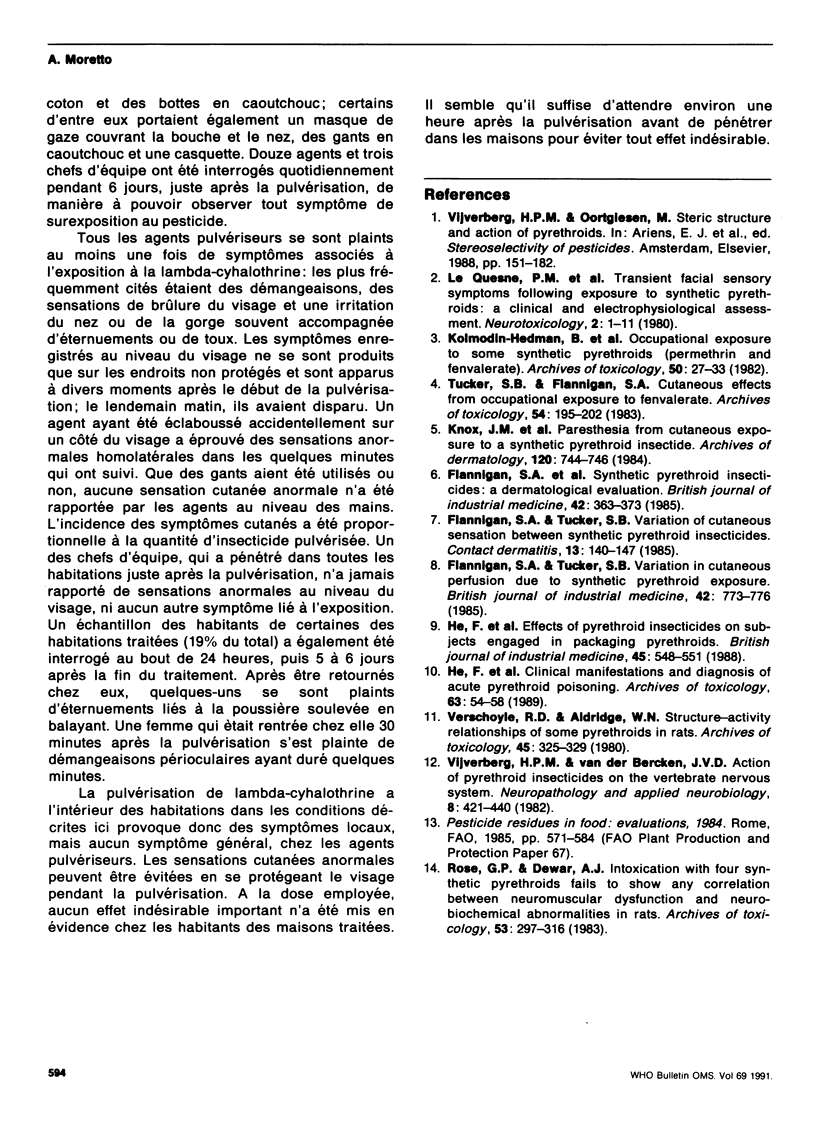Abstract
In March 1990 a study was carried out in the village of Kicheba, United Republic of Tanzania, in which the pyrethroid insecticide lambda-cyhalothrin was sprayed on all the internal surfaces of houses and other shelters at a coverage of about 25 mg of active ingredient per m2. Every day for 6 days, 12 spraymen and 3 squad-leaders were interviewed about symptoms of overexposure to the insecticide. Each sprayman used up to 62 g of lambda-cyhalothrin over 2.7-5.1 hours every day. All the spraymen complained at least once of symptoms that were related to exposure to lambda-cyhalothrin, the commonest being itching and burning of the face, and nose or throat irritation frequently accompanied by sneezing or coughing. Facial symptoms occurred on non-protected areas only. The symptoms were experienced at various times after the beginning of exposure and disappeared before the following morning. The number of subjects affected and the duration of their facial symptoms were proportional to the amount of compound sprayed. A sample of individuals was interviewed 1 day and 5-6 days after their houses had been sprayed. One woman, who entered her house 30 minutes after the end of spraying, complained of periorbicular itching, but this lasted only a few minutes. No other significant, insecticide-related adverse effect was reported by the inhabitants of the sprayed houses.
Full text
PDF



Selected References
These references are in PubMed. This may not be the complete list of references from this article.
- Flannigan S. A., Tucker S. B., Key M. M., Ross C. E., Fairchild E. J., 2nd, Grimes B. A., Harrist R. B. Synthetic pyrethroid insecticides: a dermatological evaluation. Br J Ind Med. 1985 Jun;42(6):363–372. doi: 10.1136/oem.42.6.363. [DOI] [PMC free article] [PubMed] [Google Scholar]
- Flannigan S. A., Tucker S. B. Variation in cutaneous perfusion due to synthetic pyrethroid exposure. Br J Ind Med. 1985 Nov;42(11):773–776. doi: 10.1136/oem.42.11.773. [DOI] [PMC free article] [PubMed] [Google Scholar]
- Flannigan S. A., Tucker S. B. Variation in cutaneous sensation between synthetic pyrethroid insecticides. Contact Dermatitis. 1985 Sep;13(3):140–147. doi: 10.1111/j.1600-0536.1985.tb02526.x. [DOI] [PubMed] [Google Scholar]
- Knox J. M., 2nd, Tucker S. B., Flannigan S. A. Paresthesia from cutaneous exposure to a synthetic pyrethroid insecticide. Arch Dermatol. 1984 Jun;120(6):744–746. [PubMed] [Google Scholar]
- Kolmodin-Hedman B., Swensson A., Akerblom M. Occupational exposure to some synthetic pyrethroids (permethrin and fenvalerate). Arch Toxicol. 1982 May;50(1):27–33. doi: 10.1007/BF00569234. [DOI] [PubMed] [Google Scholar]
- Le Quesne P. M., Maxwell I. C., Butterworth S. T. Transient facial sensory symptoms following exposure to synthetic pyrethroids: a clinical and electrophysiological assessment. Neurotoxicology. 1981 Jan;2(1):1–11. [PubMed] [Google Scholar]
- Rose G. P., Dewar A. J. Intoxication with four synthetic pyrethroids fails to show any correlation between neuromuscular dysfunction and neurobiochemical abnormalities in rats. Arch Toxicol. 1983 Aug;53(4):297–316. doi: 10.1007/BF00294995. [DOI] [PubMed] [Google Scholar]
- Tucker S. B., Flannigan S. A. Cutaneous effects from occupational exposure to fenvalerate. Arch Toxicol. 1983 Nov;54(3):195–202. doi: 10.1007/BF01239203. [DOI] [PubMed] [Google Scholar]
- Verschoyle R. D., Aldridge W. N. Structure-activity relationships of some pyrethroids in rats. Arch Toxicol. 1980 Oct;45(4):325–329. doi: 10.1007/BF00293813. [DOI] [PubMed] [Google Scholar]
- Vijverberg H. P., van den Bercken J. Annotation. Action of pyrethroid insecticides on the vertebrate nervous system. Neuropathol Appl Neurobiol. 1982 Nov-Dec;8(6):421–440. doi: 10.1111/j.1365-2990.1982.tb00311.x. [DOI] [PubMed] [Google Scholar]


